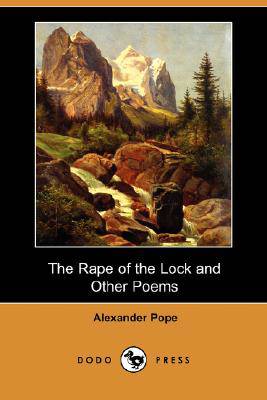
Door een staking bij bpost kan je online bestelling op dit moment iets langer onderweg zijn dan voorzien. Dringend iets nodig? Onze winkels ontvangen jou met open armen!
- Afhalen na 1 uur in een winkel met voorraad
- Gratis thuislevering in België vanaf € 30
- Ruim aanbod met 7 miljoen producten
Door een staking bij bpost kan je online bestelling op dit moment iets langer onderweg zijn dan voorzien. Dringend iets nodig? Onze winkels ontvangen jou met open armen!
- Afhalen na 1 uur in een winkel met voorraad
- Gratis thuislevering in België vanaf € 30
- Ruim aanbod met 7 miljoen producten
Zoeken
€ 13,95
+ 27 punten
Omschrijving
Alexander Pope (1688-1744) is regarded as the greatest English poet of the early eighteenth century, best known for his satirical verse and for his translation of Homer. Pope, who was born in London, was taught to read by his aunt and then sent to two surreptitious Catholic schools. He is the third most frequently quoted writer in the English language, after Shakespeare and Tennyson. Pope was a master of the heroic couplet. From early childhood he suffered numerous health problems, including Pott's disease (a form of tuberculosis affecting the spine) which deformed his body and stunted his growth. The Rape of the Lock (two-canto version, The Rape of the Locke, 1712; revised version in five cantos, 1714) is perhaps Pope's most popular poem. It is a mock-heroic epic, written to make fun of a high society quarrel between Arabella Fermor (the "Belinda" of the poem) and Lord Petre, who had snipped a lock of hair from her head without her permission. Among his other works are: An Essay on Criticism (1711); Elegy to the Memory of an Unfortunate Lady (1717); and Essay on Man (1734).
Specificaties
Betrokkenen
- Auteur(s):
- Uitgeverij:
Inhoud
- Aantal bladzijden:
- 204
- Taal:
- Engels
Eigenschappen
- Productcode (EAN):
- 9781406566437
- Verschijningsdatum:
- 28/12/2007
- Uitvoering:
- Paperback
- Formaat:
- Trade paperback (VS)
- Afmetingen:
- 152 mm x 229 mm
- Gewicht:
- 303 g

Alleen bij Standaard Boekhandel
+ 27 punten op je klantenkaart van Standaard Boekhandel
Beoordelingen
We publiceren alleen reviews die voldoen aan de voorwaarden voor reviews. Bekijk onze voorwaarden voor reviews.











